On November 22nd, 2018, the Second Advisory
Committee Meeting was held at the Conference Center of the New Main Building,
Beihang University. Ms. Simonetta Di Pippo, Director of the United Nations Office
for Outer Space Affairs (UNOOSA); representatives from Bolivia, Brazil, China,
Indonesia, Pakistan and Peru; Special Guest Mr. Sergio Camacho, former Director
of UNOOSA; Academician Xu
Huibin, President of Beihang University; Ms. Yu Qi, Director General of
Department of International Cooperation, CNSA; Mr. Zhao Zhonghe, Division Director
for Department of Civil-Military Technology Integration of Ministry of Industry
and Information Technology of the People’s Republic of China (MIIT) attended it. The meeting was hosted by
Mr. Weng Jingnong, Executive Director of the Centre, Dean of International School,
Beihang University.
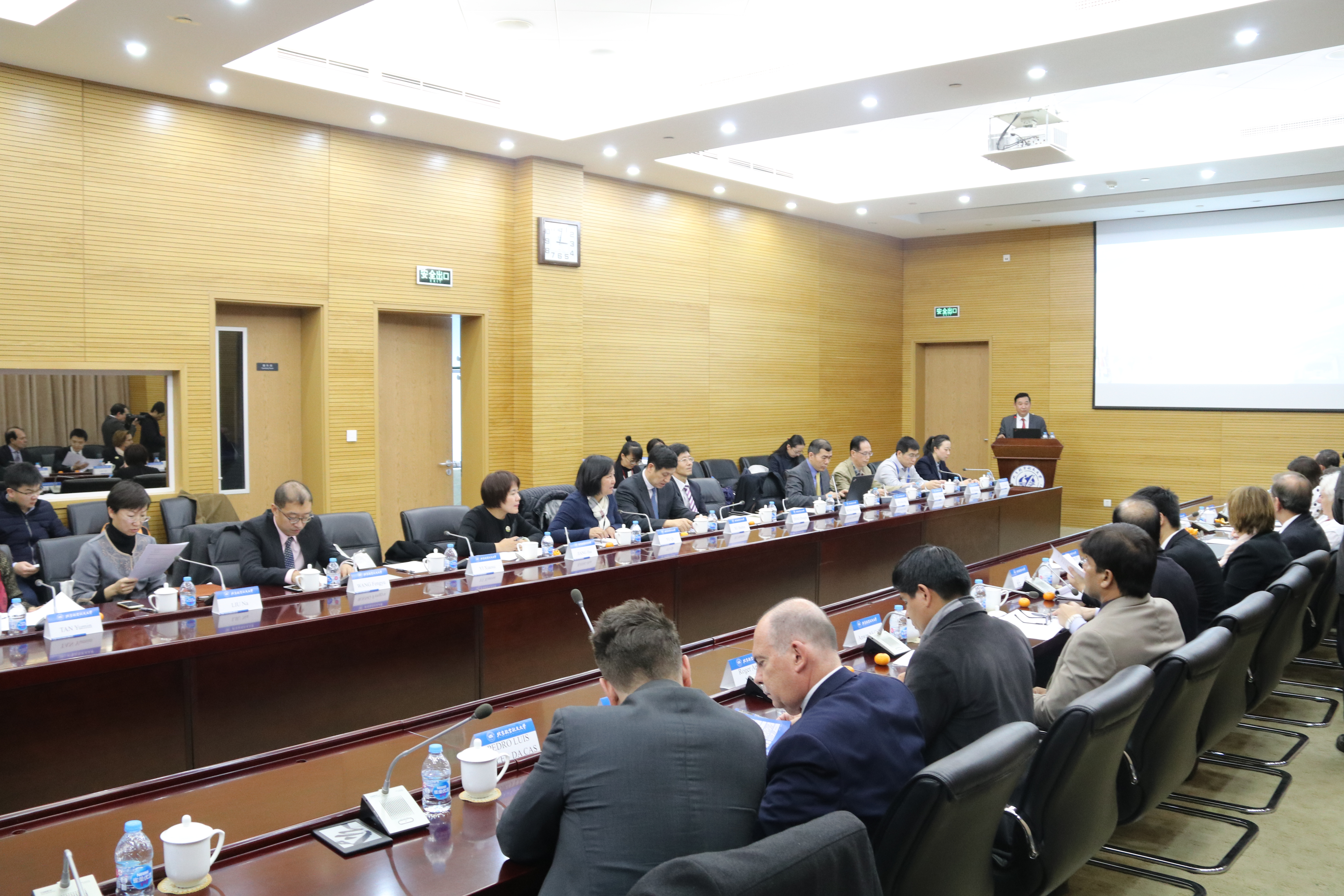
The meeting
consisted of two (2) parts: expert report and free discussion. At the meeting,
Ms. Simonetta Di Pippo, Director of UNOOSA, representatives of Member States,
CNSA and other UN Regional
Centres, domestic experts
of space technology application made reports
respectively. Ms. Simonetta Di Pippo, Director of UNOOSA, introduced the major
movements in Outer Space and explained the programmatic documents on the latest space activities. Mr.
Anwar Ali Gaho, representative of the Member States, introduced Pakistan’s current situation and needs
in space technology. Ms. Jiang Hui, Division Director of Department of International
Cooperation, CNSA, elaborated that how the Belt & Road Spatial Information Corridor contribute
to the space capacity building of developing countries for the Sustainable
Development Goals (SDGs), and proposed the main goals for the next five
(5) years. Mr.
Weng Jingnong, Executive Director of the Centre, Dean of International
School, Beihang University,
introduced the latest developments and capacity building of the Centre. Mr. Liu
Wenlong, Professor of School of Space and Environment, Beihang University,
introduced the advantages of School of Space and Environment, scientific
achievements and International Space Science Institute (ISSI) teams. Mr. Huang Hai, Professor of
School of Astronautics, Beihang University, introduced the training of Small
Satellite Technology talents and the progress of APSCO-SSS Project.
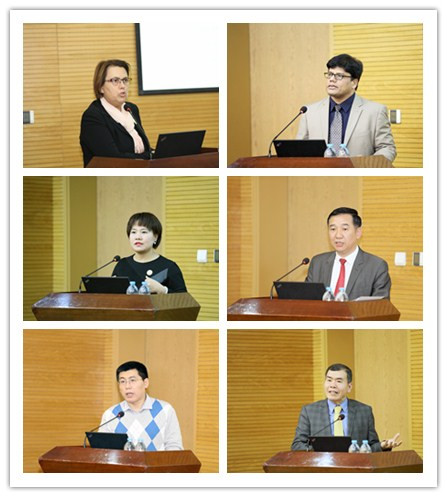
Ms. Simonetta Di
Pippo, Director of UNOOSA,
thanked the Chinese government and Beihang University for their contributions
in promoting the development of the Centre and cultivation of talents.
She hoped that through international
initiatives such as UNISAPCE+50 and the “Space2030 Agenda” for Sustainable
Development, international cooperation and the common interests of all human
space would be
strengthened. Ms. Yu
Qi, Director General of Department of International Cooperation, CNSA, praised
the important role played by Beihang graduates in the international academic
and communication arena. She also hoped that the Centre could provide a broader
and more professional academic exchange platform for students from
all over the
world, helping them light their dreams. The
representatives fully
affirmed the work of the Centre. They were grateful to the Centre for its
intellectual support to the Member States in education and training. They also
hoped to work
together to build Alliance of Regional Centres (ARC) and make space technology education
benefit more countries.
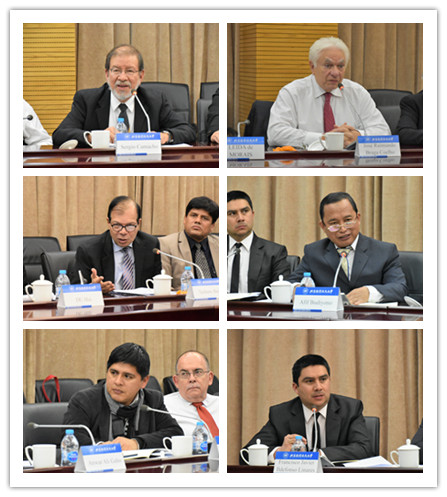
Academician Xu Huibin, President of Beihang
University, mentioned that it had been four (4) years since the
establishment of the Centre. Rapid development as well as encouraging achievements
had been made,
which wouldn’t be achieved without the support of UNOOSA, the Chinese
Government, the Member States of the Centre, other UN Regional Centres and
partners. In the future, the university will continue to provide support in
team building, education and teaching, facility construction, and capacity
building. “Distance cannot separate true friends who feel so close even when
they are thousands of miles apart”. He hoped that the cooperation would be further enhanced, to
discuss, build and share together. It is glad to jointly promote the
construction of a community of human destiny in outer space, and make greater
contribution to the sustainable development of space science and technology.
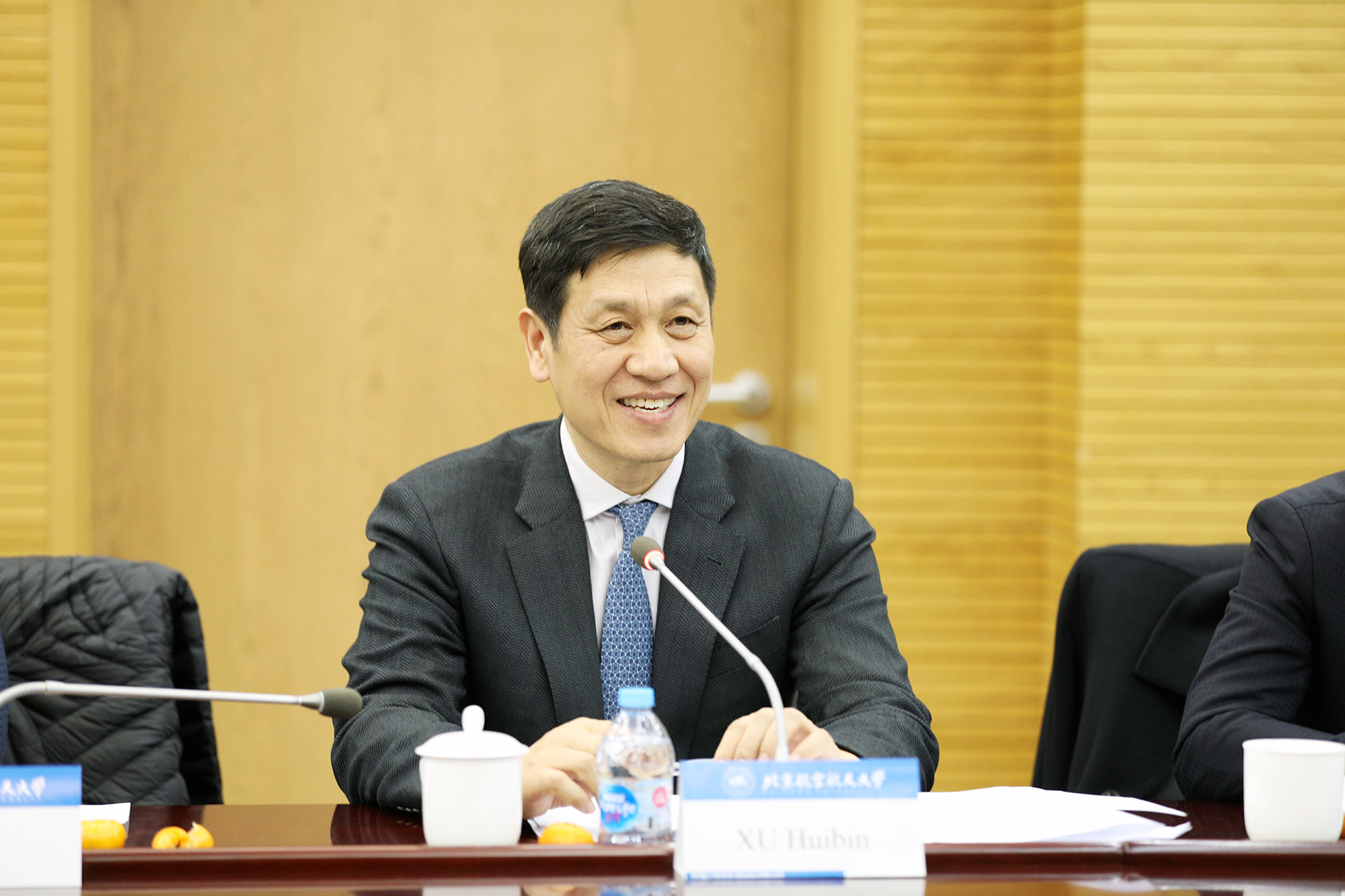
Before the meeting, Mr.
Xu Huibin and Ms.
Simonetta Di Pippo made a short meeting. They exchanged views on
international space development trends, space technology applications,
personnel training and international cooperation. During the talks, Mr.
Xu also consulted
with Ms. Simonetta Di Pippo about the selection of outstanding students of
Beihang University to work as interns in UNOOSA.
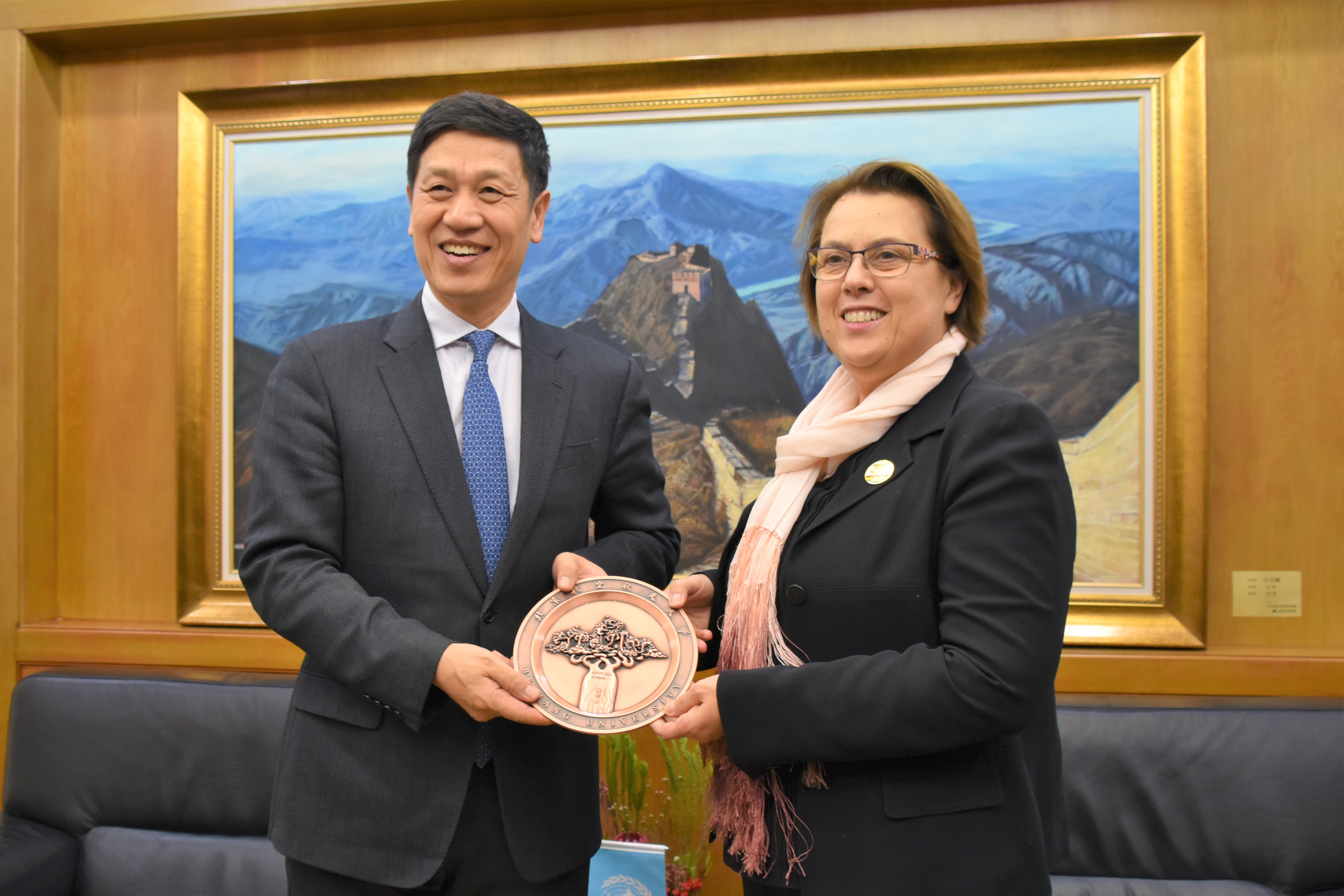
During the meeting,
representatives of the Member States were invited to visit the National Satellite
Meteorological Center (NSMC), the newly constructed Beihang Small Satellite Ground
Station and Space
Technology Application (STA) library in
the Centre, which enhanced understanding and promoted exchanges and cooperation
of the participants.
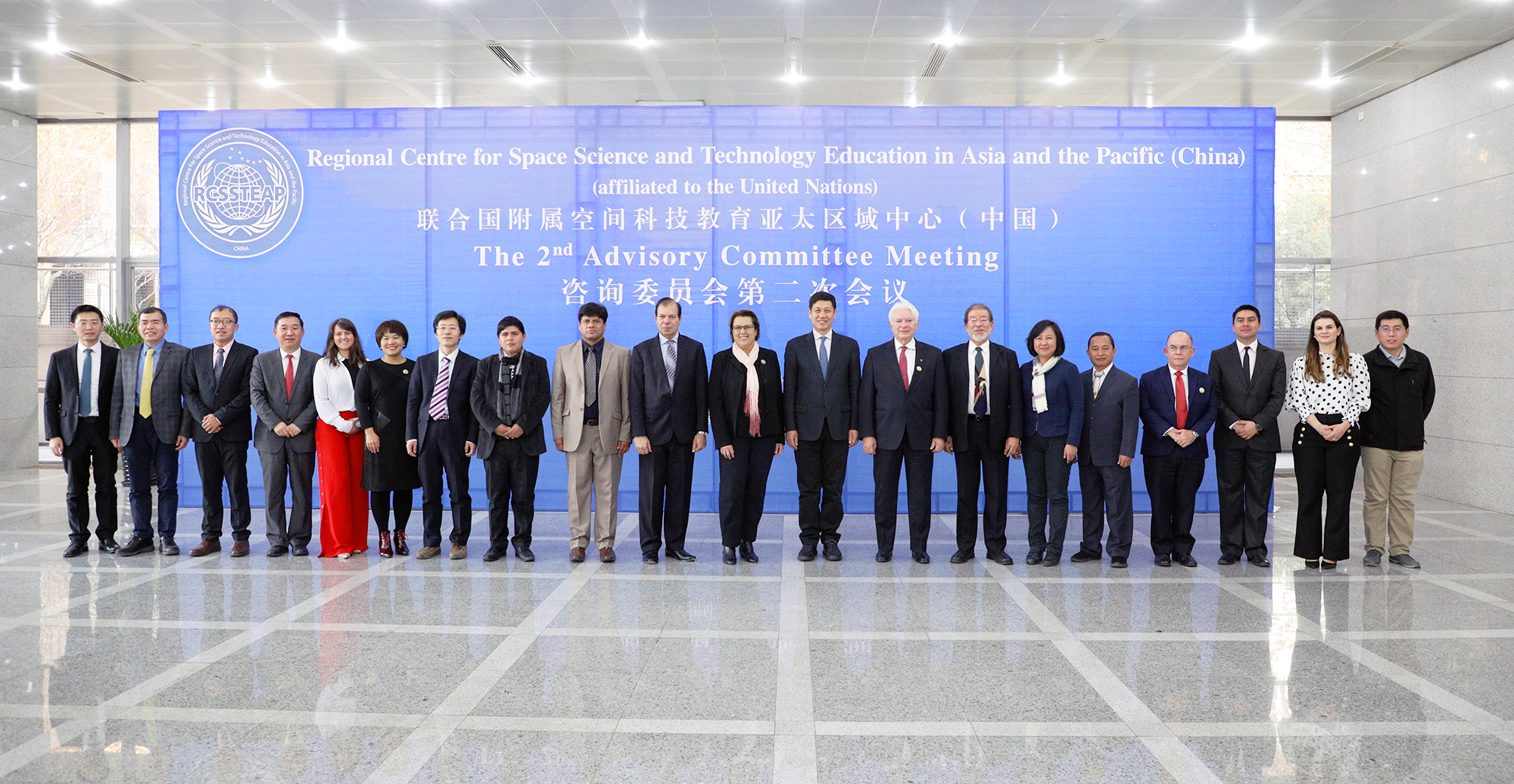
In addition, the representatives also wrote down their
suggestions for the future development of the Centre through questionnaires, which would
provide strong information support
for its greater
progress.

